Search Results: story compass
Introducing The Story Compass
filed in Marketing, Storytelling, Strategy
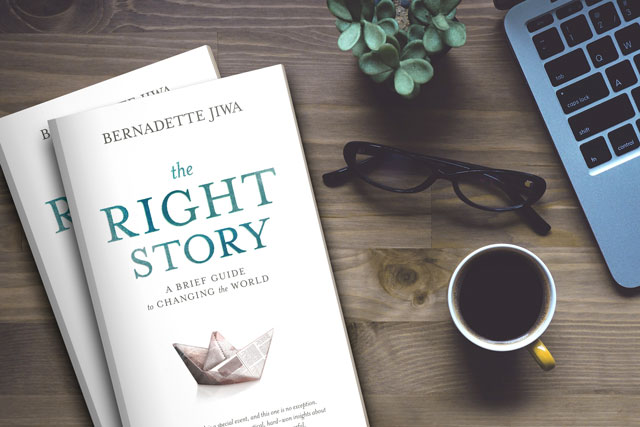
My new book, The Right Story publishes today. I can’t wait to hear how you’re using the new tools in the book to help you craft your messaging and engage more deeply with your customers. The Story Compass is one of those tools in the book. It’s designed to facilitate powerful, purposeful storytelling. It will help you to clarify what’s driving your story at any given time, and to consider how best to deliver your message as a result.

Using The Story Compass, together with the accompanying questions in the book will give you a better understanding of the change you’re trying to create, for whom, and help you tell the right story to achieve it. It enables you to define your story strategy and design your tactics. Before you begin to craft your message, you need to decide if the purpose of that message is to get attention or to deepen trust and connection. Is it to empower people to be open to persuasion or to act?
Once you know why you’re telling the story you can begin to work on how to best tell it. The tactics you use to get your message across are the how of your story—the means by which you carry out your strategy. What you say and do, when and where, has an impact on where you end up. A message that resonates relies on the communicator discerning the most e ective way to deliver it.
The clarity with which you show up, as only you can, changes how the story is told and with whom it resonates. How you go about your work can have just as much impact on your results as the work itself.
The Right Story is my invitation to you to think about the impact of the work you’re here to do and the skin you want to get under, the hearts you want to touch and the lives you want to make better.
Thanks for giving me a reason to write it.
A Compass For The Heart
filed in Meaningful Work, Strategy, Success

Where do you turn when you don’t know what to do?
Perhaps you do a Google search for facts. Maybe you read a book and get information. You might consult a professional for their expertise. And friends will gladly offer you opinions based on their experiences.
You can only gain insights and intuition based on your experience by taking time to reflect. Every day we have the opportunity to use yesterday’s stories as wise counsel for tomorrow. But we don’t have a way of remembering, recording or reflecting on what those everyday stories can teach us.
Inspired by my work with thousands of Story Skills Workshop students. I created
A Compass For The Heart. It’s a 90-day guided journal for self-reflection that helps you to record the everyday stories and life lessons to guide your decisions in good times and bad.
Inside, you’ll find a simple framework and templates for daily reflection that help you to capture your wisest, strongest self to store away for a time when you need it the most.
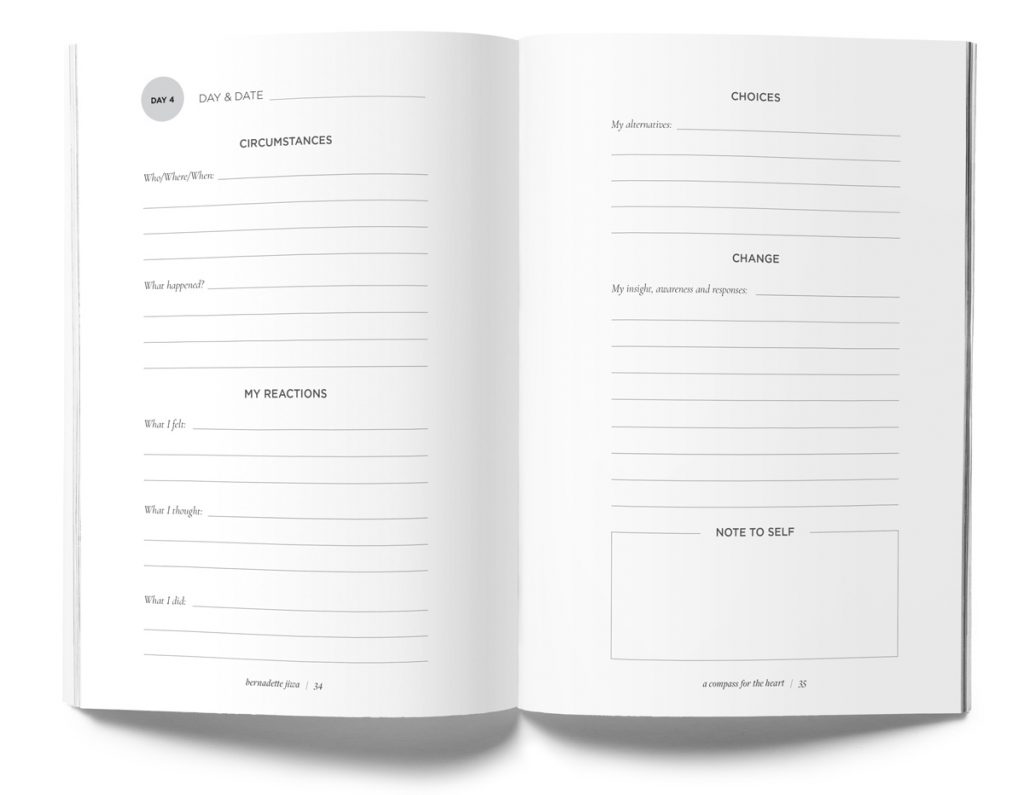
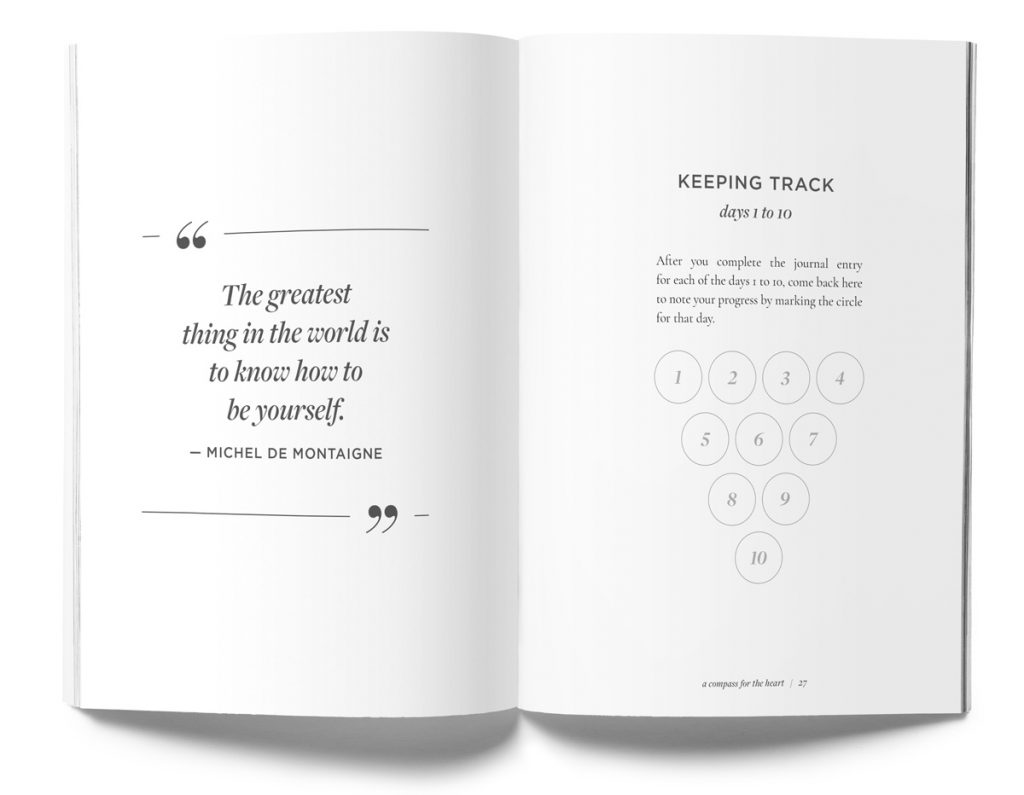
Although I’m a writer and I gather stories every day, I’ve never been one for journaling. There’s something about that blank page that’s intimidating. It feels like a sacred space for only the most elevated thoughts.
If like me, you’ve tried and failed to create a reflection ritual or journaling practice in the past, I hope you’ll give A Compass For The Heart a try. You can buy it now from Amazon.com, Amazon.co.uk, Amazon.ca or by searching your regional Amazon store. *Note: The journal will be available in Amazon’s Australian store in 6 weeks.
Thank you as always for giving me a reason to reflect, write and create. It’s a joy and a privilege to share ideas with you.
A Compass For The Heart
filed in
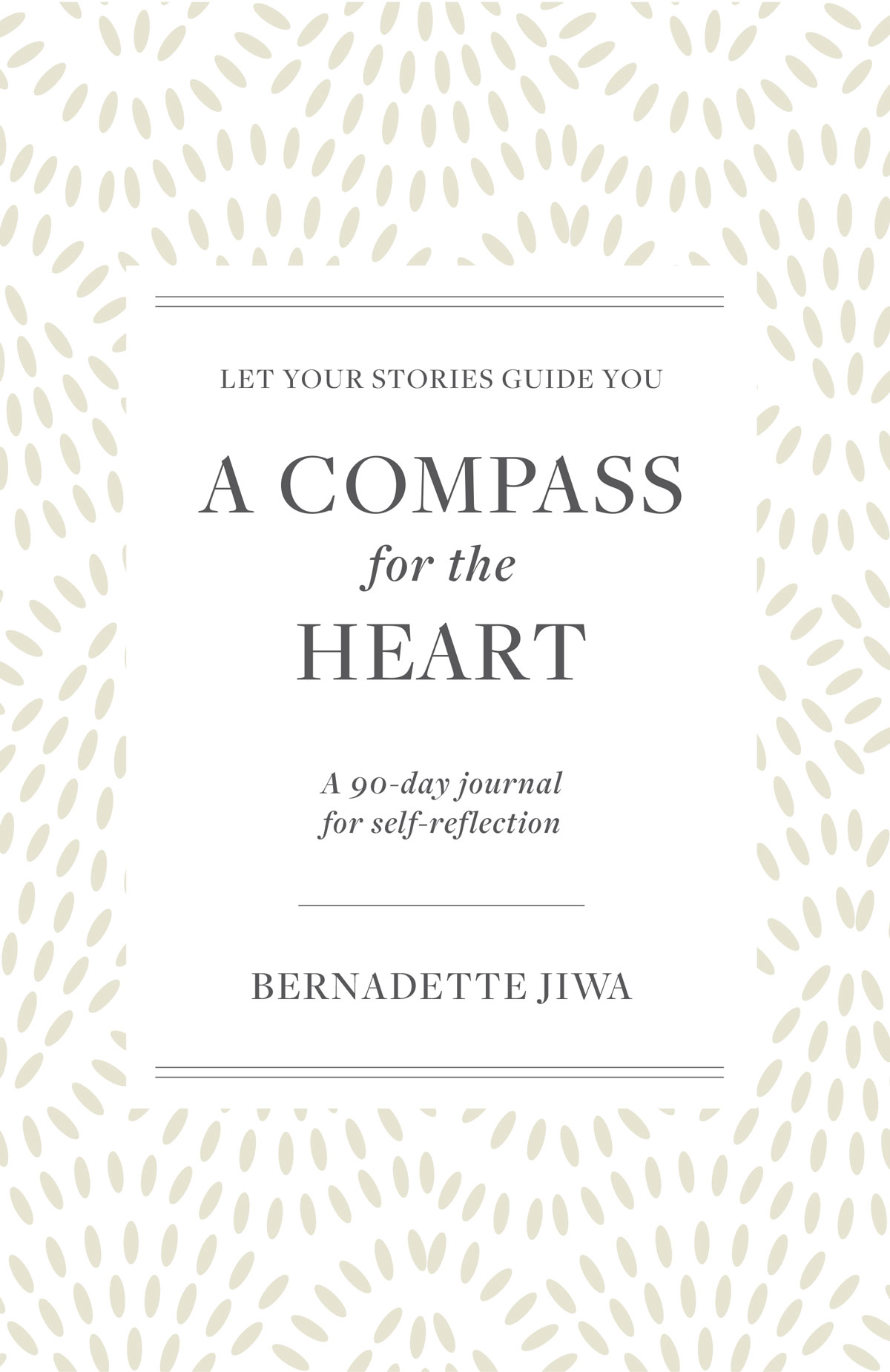
A Compass For The Heart
Published June 2020Let your stories guide you.
Inspired by bestselling author Bernadette Jiwa’s work with thousands of Story Skills Workshop students.
A Compass For The Heart is a 90-day guided journal for self-reflection that helps you to record the everyday stories and life lessons that will guide your decisions in good times and bad.
Long before we know how to tell stories, we understand that they are our teachers. We are transported to worlds where heroes and heroines find themselves in circumstances, faced with choices that cause them to change.
By listening to stories, we learn ways that we might be braver, more courageous, and more true to ourselves.
Every day we have the opportunity to use yesterday’s stories as wise counsel for tomorrow.
Inside, you will find a framework and templates for daily reflection that help you to easily capture your wisest, strongest self to store away for a time when you need it the most.
All BooksThe Right Story
Story Driven
Hunch
Meaningful
Marketing: A Love Story
Difference
Fortune Cookie Principle
Make Your Idea Matter Buy Compass For The Heart
AMAZON.COM
AMAZON.CO.UK
AMAZON.COM.AU
AMAZON.CA
Other regions, please search your local Amazon store by title and author.
The Empathy Advantage
filed in Strategy

On the face of it, the bus driver is paid by the hour to get passengers safely from point A to point B. But most of the value he creates for the bus company, not to mention the city, has nothing to do with his driving ability. It’s in the empathetic work of reassuring passengers and tourists, taking care to make sure they have a pleasant journey. How he does his job changes everything about the passenger experience.
For most of us, our job description rarely encompasses the extent of the real work we do, or how we create meaning and value.
Just as there are several possible routes to a destination, there are many ways to leverage the power of empathy to differentiate a brand or business.
How you do what you do is your competitive advantage.
All Figured Out
filed in Strategy
 It’s doubtful that when Amazon founder, Jeff Bezos, now the world’s wealthiest man, launched the company over twenty years ago he had every tactical move figured out. The Bezos of 1999 couldn’t have predicted how his company would come to dominate and diversify. While he may not have understood the exact next step on the journey, Bezos did have a mission and a set of guiding principles upon which he would build and lead his company.
It’s doubtful that when Amazon founder, Jeff Bezos, now the world’s wealthiest man, launched the company over twenty years ago he had every tactical move figured out. The Bezos of 1999 couldn’t have predicted how his company would come to dominate and diversify. While he may not have understood the exact next step on the journey, Bezos did have a mission and a set of guiding principles upon which he would build and lead his company.
In his 2018 annual letter to shareholders Bezos reiterated the importance of Amazon’s approach.
“This year marks the 20th anniversary of our first shareholder letter, and our core values and approach remain unchanged. We continue to aspire to be Earth’s most customer-centric company, and we recognize this to be no small or easy challenge. We know there is much we can do better, and we find tremendous energy in the many challenges and opportunities that lie ahead.”
Even if you don’t aspire to build the next Amazon, there’s a lot to be learned from their philosophy. A compass is more useful than a map when you’re navigating new terrain. You need to know why you want to go someplace before you can work out exactly how to get there.
Image by Freshwater
The Easy Way To Create A Mission And Vision Statement
filed in Marketing, Storytelling, Strategy
 There’s something beyond skill, talent, investment and resources that powers the most successful companies, and that’s a clear sense of where they are going and why. When you have a compass it’s not only easier to get to where you want to go, it’s also possible to take people with you.
There’s something beyond skill, talent, investment and resources that powers the most successful companies, and that’s a clear sense of where they are going and why. When you have a compass it’s not only easier to get to where you want to go, it’s also possible to take people with you.
I’ve written previously about how to write your mission statement, but since it’s easy to get confused between mission and vision, I thought I’d break it down.
Your mission statement describes why your company exists—it serves as both a guiding light for your team and a public statement of intention. Your vision statement describes your future impact—the result and effect of executing on your mission. In their simplest form a mission and vision can we summarised in a single sentence.
We do, make, create, serve, empower, inspire [ABC], [XYZ] will happen because we did [ABC].
Using this model we could describe the Airbnb mission and vision as follows:
Our mission is to build a community-driven hospitality company, that makes travellers all over the world feel like they belong anywhere.
Now it’s your turn.
Image by Michael R. Perry.
30 Questions Every Startup And Entrepreneur Should Answer
filed in Entrepreneurship, Storytelling, Strategy
 We’ve become really good at looking for answers. So good in fact, that we get close to asking
We’ve become really good at looking for answers. So good in fact, that we get close to asking
a billion questions every day in Google search.
And yet as busy business owners and idea creators, we struggle to find time to ask really important questions of ourselves. Here then, are questions worth taking the time to answer.
30 Questions for every startup and entrepreneur
1. Why are we doing this?
2. Why are we the people to do it?
3. Why is now the time to start?
4. What will happen because this idea exists?
5. How will this change how people feel about x?
6. Who is it for?
7. Why will they care?
8. What do the people we hope to serve want?
9. What do they believe?
10.How do they feel about the problem we solve?
11.What do they do—where, when, why and with whom?
12.What will customers say to their friends to recommend this product or service?
13.How can we make customers feel good because they recommend it?
14.What are we really selling beyond the utility of the product or service?
15.How can we add more value?
16.What happens because our business or project exists?
17.How will people find us?
18.Where are they already looking, or not looking?
19.What’s our greatest strength?
20.What weakness might get in the way if we don’t address it?
21.What does success look like, today, this year, next and five years from now?
22.What do we value?
23.What do we want to change?
24.What promises do we want to make and keep?
25.What matters most right now?
26.What’s going to matter more three, six or eighteen months from now?
27.What’s our difference?
28.What do we need to do today, to make sure that we can keep doing the things we want to do tomorrow?
29.If we could do anything today would this be it?
30.If not this then what?
When you know what you want, where you’re headed and why almost nothing can stop you.
Image by Darkwood67.
u2 Don’t Sing To Everyone
 Back in the 80’s when U2 were starting out they knew they were singing for me, and the 520 other girls at my school. It didn’t matter that they wrote songs that didn’t resonate with my mother. They knew that we drew their album graphics with a Bic Biro on our canvas school bags and scribbled their name on our exercise books during boring history lessons.
Back in the 80’s when U2 were starting out they knew they were singing for me, and the 520 other girls at my school. It didn’t matter that they wrote songs that didn’t resonate with my mother. They knew that we drew their album graphics with a Bic Biro on our canvas school bags and scribbled their name on our exercise books during boring history lessons.
Who are you creating for?
Who will kill for your designs? Who is going to buy your book or schedule a consultation. Who will understand your message? Hand on heart, do you really know?
It’s so easy to overlook this when you’re building your business and crafting your brand.
The creation part, building the thing, scoping out the spec and writing the sales page is hard enough. So with blind faith we sometimes believe that because we perceive a need and work of filling it, that if we build it they will come. Maybe they will, but the thing is if you create something with a specific audience in mind then even laying the foundations of your idea becomes so much easier.
Start by knowing your audience, then build the idea just for them
Call it what you will, target audience, niche market or client avatar. The label is irrelevant, the purpose is to understand the human being(s) behind that label. That understanding of your audience turns needs into wants and means that you no longer have to use the megaphone to reach them. They will begin to hear you from whispering distance.
One of the best target audience descriptions I’ve ever read was written by John Locke. He’s the guy who sold over a million ebooks in five months, so I guess knowing who he’s talking to hasn’t worked so badly for him. Here’s some of what he wrote:
“The people who love my books love everyday heroes. They are compassionate people who root for the underdog, but are drawn to the outrageous and have a dry sense of humour. They are all ages but a surprising number are professional men and women above the age of 50. More than 70% are women. My readers are much more intelligent than you might think, many are doctors nurses and business leaders.
Those who like my books tend to be busy people who are frazzled and stressed out beyond the point of no return. They’ve read their share of high brow books, but these days they mostly read to relax with a fast paced easy read that makes them laugh out loud. My readers are smarter than my heroes and they know it. They like the small bit of research I do. They don’t want to be educated but they love to learn one or two unusual facts along the way they can pass on in conversations at dinner.
My readers are renegades they like things editors hate, light character descriptions and almost no detail about settings. They know I’m not trying to save the world or write meaningful literature that kids might have to study in school someday. They know the sole purpose of my writing is to make them smile or laugh for a few hours on a day when they need it most, and they like that about me.”
How would your products be different if you sat down and created a client avatar like this? Often the hardest thing isn’t finding the problem to solve, but finding the people to solve that problem for.
Image by Danny Hammontree.
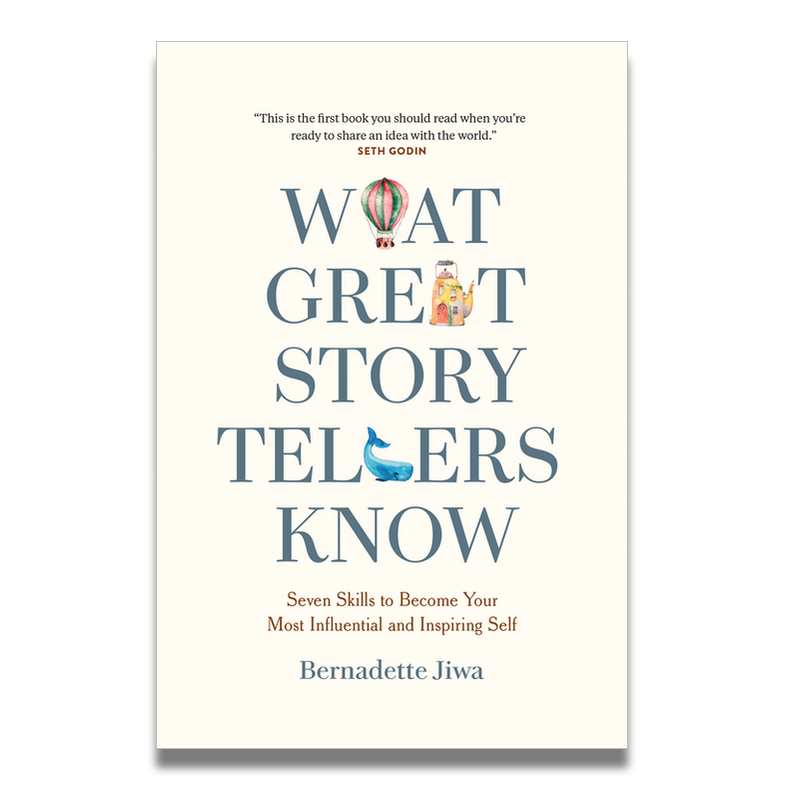

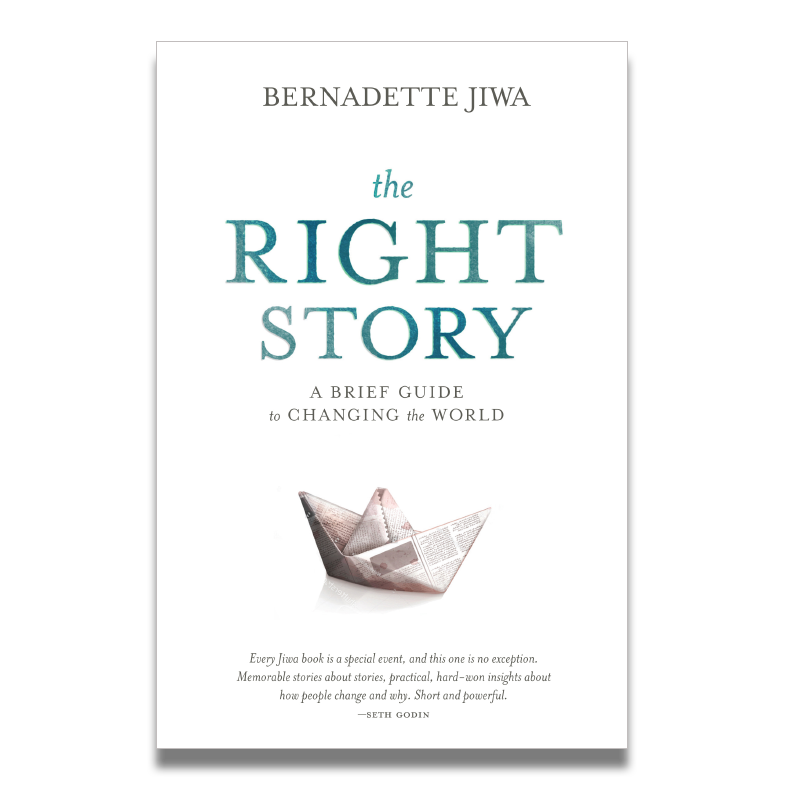
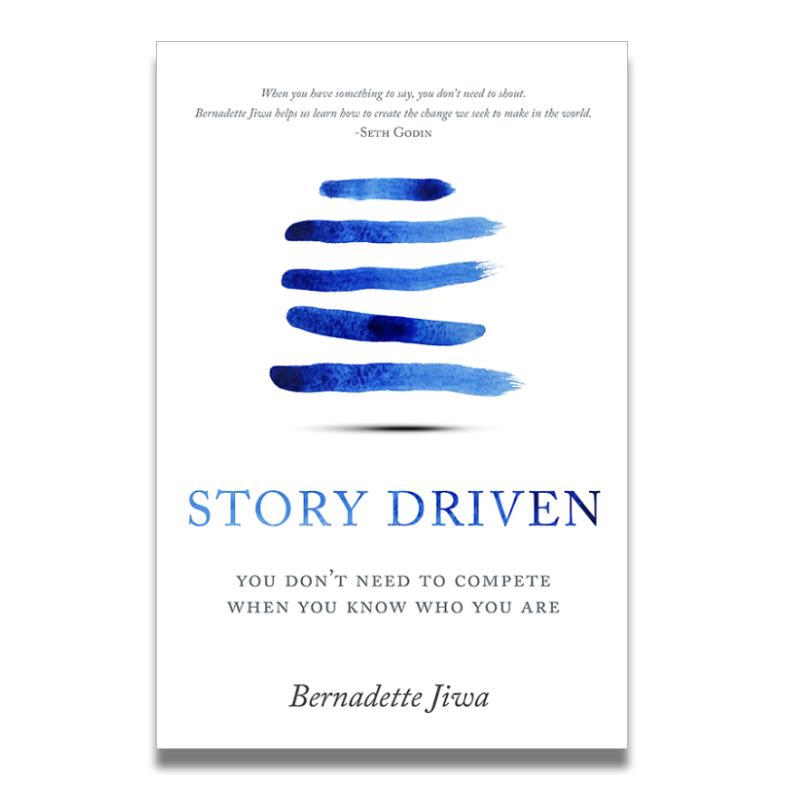
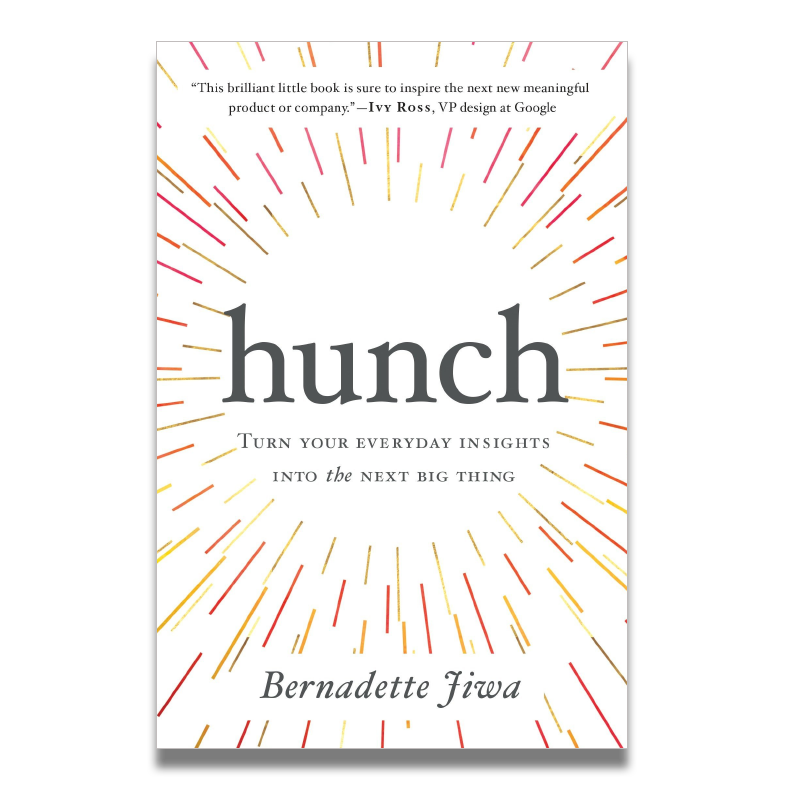
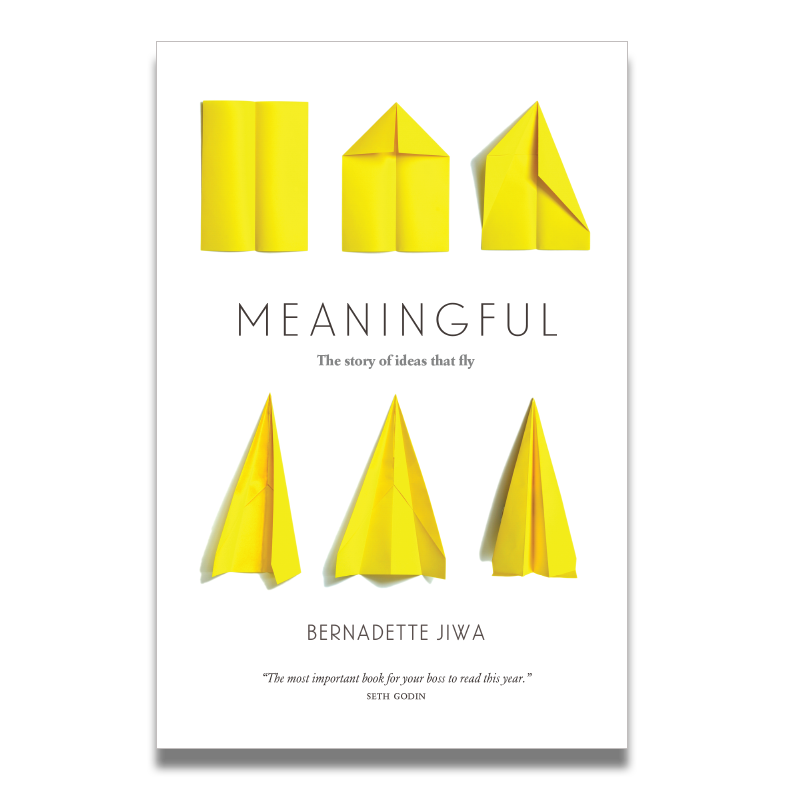
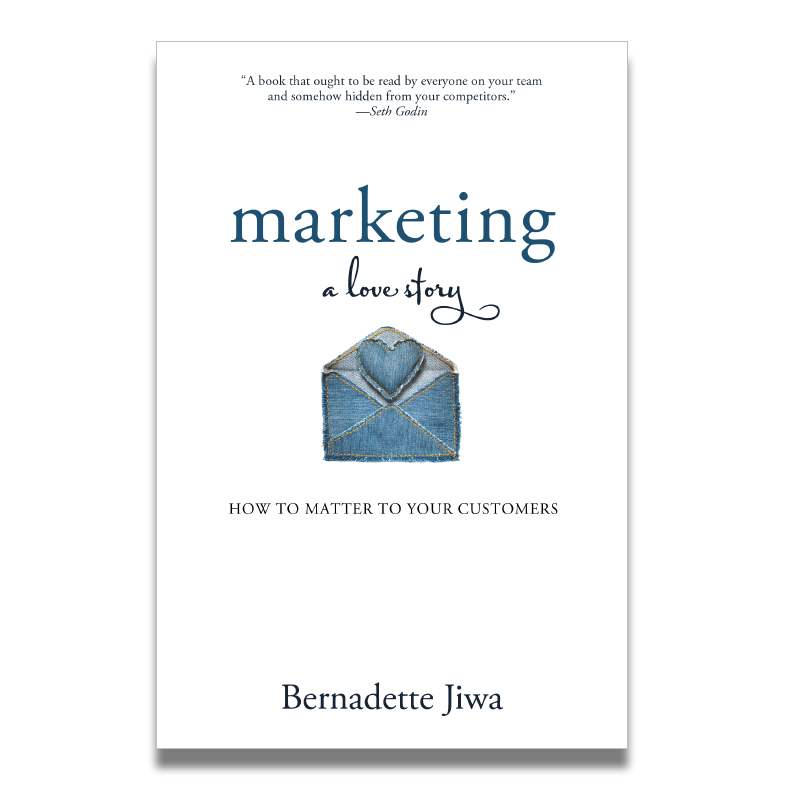
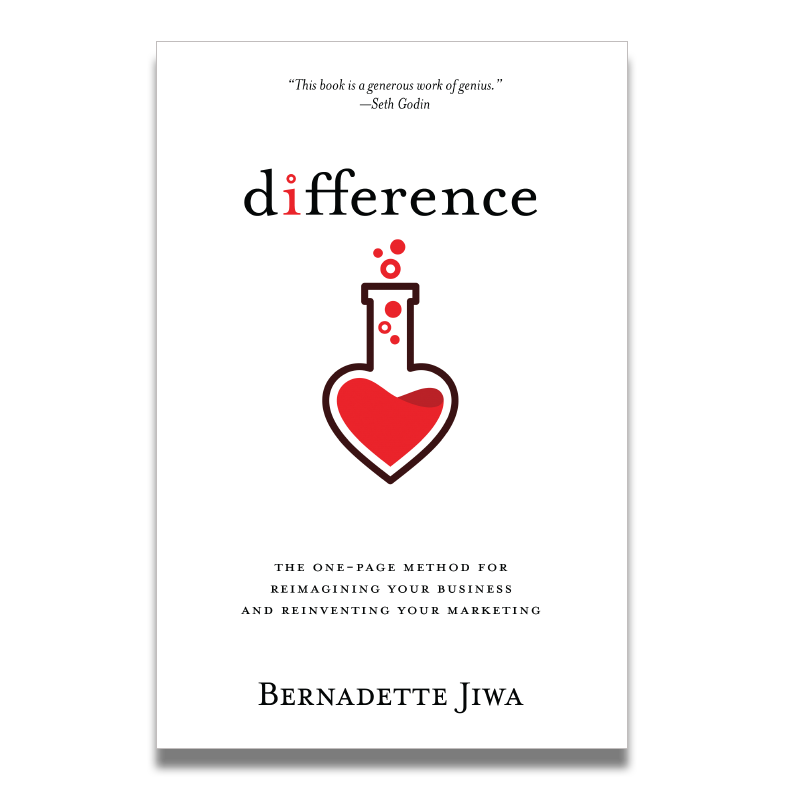
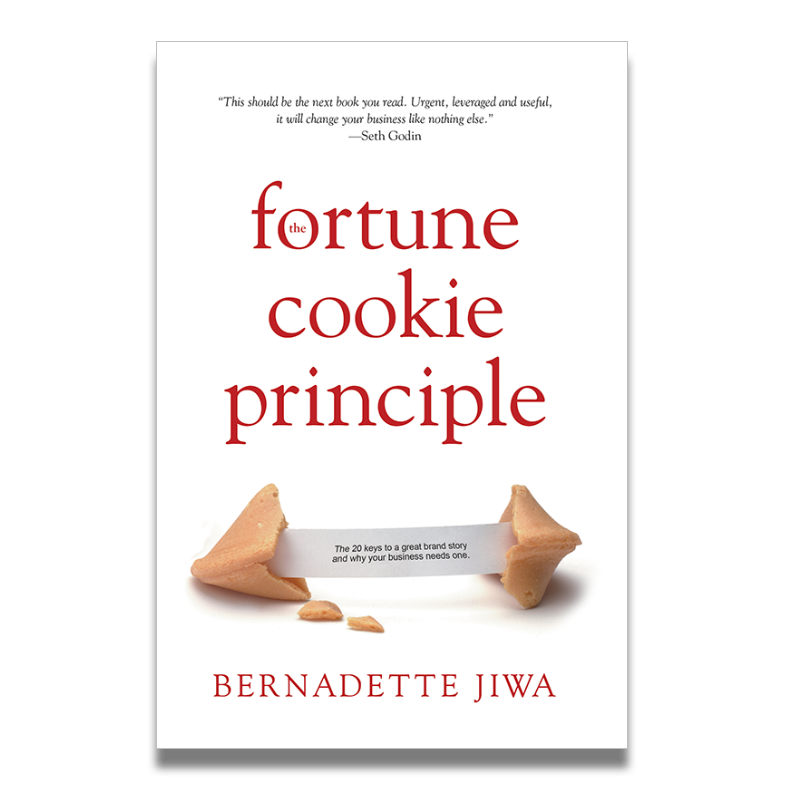
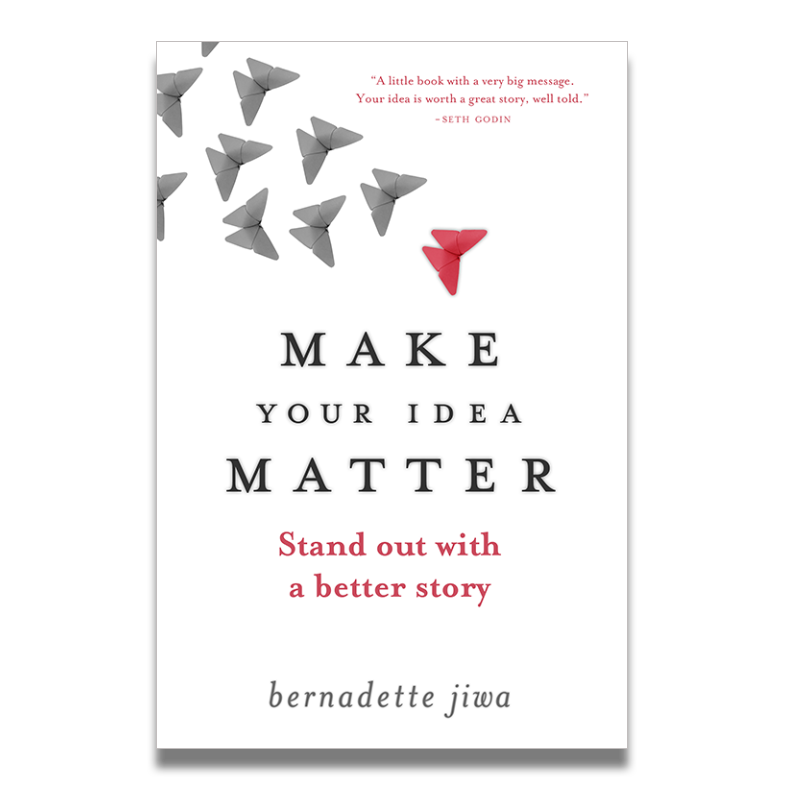
 All around us big vanilla businesses and corporations are struggling to understand how to connect with customers and give people what they want. Businesses like McDonalds are
All around us big vanilla businesses and corporations are struggling to understand how to connect with customers and give people what they want. Businesses like McDonalds are